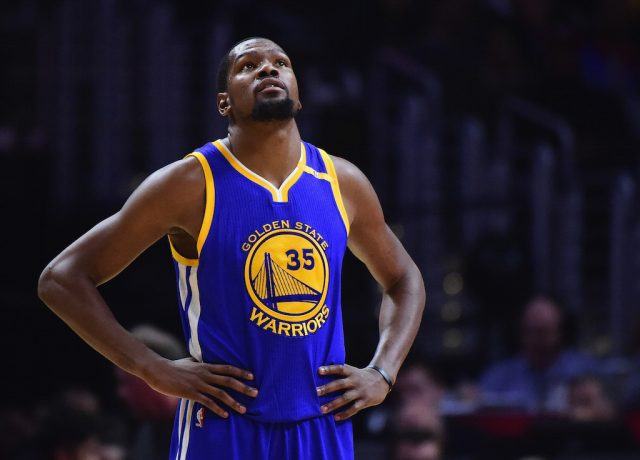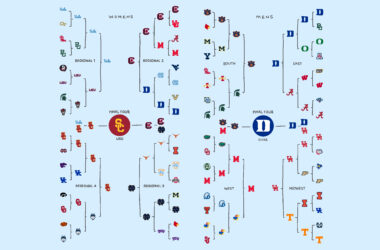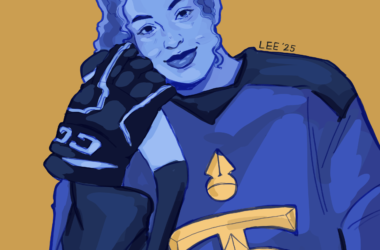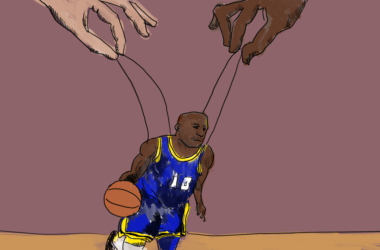NBA player Kevin Durant received relentless scrutiny following his 2016 decision to leave the Oklahoma City Thunder for the Golden State Warriors. The decision came after the Thunder infamously gave up a 3–1 lead in the Western Conference Finals to Warriors, and fans have continued to express their disapproval of his decision and its consequent creation of a Warriors super-team. However, few have considered how this decision affected Durant’s personal life. The dynamic between Durant and basketball fans has highlighted a larger issue in sports: How the dehumanization of superstar athletes negatively affects their dynamic with fans and their own personal wellbeing.
The destructive relationship between fans and athletes was recently displayed when Durant strained his calf during Game 5 of the 2019 NBA Western Conference Semifinals. A month later, in Game 5 of the championship finals, Durant ruptured his Achilles tendon after only 14 minutes of play—an injury that threatens his career. Analysts and fans alike immediately sought to place blame, linking the injury to the calf strain. Some believed that a negligent medical staff was responsible for his premature return; others surmised that the Warriors organization pressured Durant to be on the floor. Largely unnoticed, however, was the potential impact NBA fans had on Durant’s decision to return to the starting lineup.
Fans glorify professional athletes due to their unparalleled talent, nationally televised presence, and huge salaries. In so doing, they inadvertently forget that athletes are human, too. This can lead fans to place immense pressure on athletes, affecting both performance and decisions like whether or not to play.
“[W]e’re idolized as superstar athletes, not human beings,” Golden State centre Demarcus Cousins said to reporters after Game 5. “It’s always about what we can do between those lines. That’s it.”
The significance of Durant’s two NBA Championship titles and Finals MVP awards have been diluted given his elite teammates, and his move to the Warriors has been condemned as the weakest by an NBA superstar. This may have culminated in desperation to consistently prove himself, an impulse which he has displayed in the past by using fake Twitter accounts to defend his reputation against criticism from fans.
Durant’s injury now carries an even greater significance due to the fact that many Toronto fans cheered when he went down, despite the Raptors players urgently waving for the crowd to stop. At this moment, the crowd’s desire for a championship and inability to relate to the man on the floor presented a concerning picture: Fans can become so distant from professional athletes that they forget the compassion that they would normally show their peers.
Two-time champion and Finals MVP Kawhi Leonard of the Toronto Raptors may know better than anyone the feeling of such immense pressure to return: The San Antonio Spurs cleared the forward to play earlier than he felt appropriate after a mysterious quad injury. Despite mounting pressure, Leonard did not give in, opting to sit out almost the entirety of the 2017-18 season and seek independent treatment.
Durant’s injury invites fans to reflect on how they treat players, bridging the gap between excessive idolization and empathetic understanding. For athletes to retain their humanity, the standard must not be that they either win a championship, as Leonard did, or destroy their body in the same pursuit, as has been the case for Durant. Spurs guard DeMar DeRozan is among a group of players who have taken a great first step by opening up about their depression to help fans understand just how human professional athletes are. It is a two-way street, however, and fans need to meet athletes halfway by respecting, honouring, and loving them not only as competitors, but as human beings.








